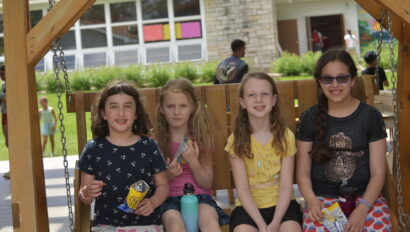“God Saw the Israelites, and God Knew…”: Reflections on Parashat Shemot by Ben Hofkin
In a lovely instance of what commentator Robert Alter describes as the beautiful “reticence” of Biblical narrative, the Torah sets the stage for Moses’ call to prophecy, and with it the beginning of the Exodus story, as follows:
And it happened when a long time had passed that the king of Egypt died, and the Israelites groaned from the bondage and cried out, and their plea from the bondage went up to God. And God heard their moaning, and God remembered His covenant with Abraham, with Isaac, and with Jacob. And God saw the Israelites, and God knew. (Exodus 2:23–25)
God heard, God remembered, God saw, and God knew…
What, precisely, did God know? (And what tantalizingly cryptic prose!) While Rashi is comfortable with this mysteriously objectless verb, taking it to mean that God “gave [the Israelites] His heart, and did not hide His eyes [from them],” the plain meaning of the text, it has always appeared to me, is that God knew it was time – time, that is, to make good on God’s end of the covenant with Abraham, that at the end of four hundred years God would liberate Abraham’s children from bondage. And indeed many other commentators are eager to fill in exactly what it is they think that God knew.
This particular year, however, I found myself reading this wonderfully elliptical passage a little more like Rashi: I’ve been thinking less about the deliverance, and more about God’s simple recognition of our suffering – the empathy. As a father, when one of my girls falls down and scrapes her knee and cries, of course I move quickly to wash the scrape, put a band-aid on it, and otherwise do what I can to make it better. But before that, I’ll probably kiss her forehead, hold her gently to me, and simply tell her, “I know, sweetie, I know…” A skinned knee, of course, is about the most mundane experience of human pain there is; we can all truly say that we know how one feels. So if our instinct typically is not to fill in the words after “I know…” – What exactly is it that we know? – even for a simple owie, how much more so with real hardship? After all, not even God fills this silence: “God saw the Israelites, and God knew…”
There is subtle power in leaving the sentence open – in the ellipsis. It stands for quiet, humble witness in the face of unutterable suffering. The ellipsis is the essence of empathy.
To be clear, I am not saying that silent empathy should be the only response to profound pain, any more than it would have sufficed for our ancestors enslaved in Egypt. But as with God’s initial seeing and knowing – God’s first real agency in the Exodus story – it must come first. Sometimes, as with our mothers’ and fathers’ crying out to God after four centuries of grinding persecution and enslavement, the suffering grows so deep that any comprehension of it cannot be expressed verbally – and so the only way to honor its gravity is with silence. To pause, and to hold space free of words for its enormity, not to try to circumscribe it with language. To breathe into the pain, and not to look away. Simply to see, and to know. So, before taking any concrete action, as Rashi teaches us, God first pauses to sit with us in quiet, heartful presence, in a silence more powerful than any words. And from that place of radical empathy, God knows too that the time has come to enter the story.
The past year has brought profound suffering to members of our community, and to our society, on a scale most of us have not seen – and never imagined seeing – in our lifetimes. Some of us have family who have died in the pandemic. Others have spent weeks clinging to life in the ICU, and months afterwards recovering. Others still have worked on COVID floors in overwhelmed hospitals as patients all around them struggle to breathe, perhaps holding up their phones so they could say goodbye to their loved ones before being ventilated. We don’t have words equal to the magnitude of such suffering.
And when we read in our parashah about God’s compassion for our ancestors at the end of four hundred years of slavery, how can we not also think of the four hundred–year history of Black Americans – the worst parts of which were on ghastly display with the horrific murder of George Floyd just over a mile from my home in Minneapolis this past Memorial Day? Language cannot express what George Floyd and his family suffered. While incalculable progress on racial justice has been made since the heyday of the Middle Passage or the Civil War, Floyd’s public strangling, over ten excruciating minutes, should help – along with so many other events of late – bring home to us just how far we still have to go. Just this afternoon (Wednesday, January 6, 2021), as I was writing this d’var Torah, I saw a thing I can honestly say I never thought I’d witness: a Confederate flag being waved on the floor of the United States Capitol. The vaunted armies of Lee and Jackson never could accomplish such a thing – but there was the image on my TV screen! Truly, as William Faulkner said, “the past is never dead. It’s not even past.”
As God brought us out of Egypt, we are obligated to work toward racial justice and equality for Americans of color – and that begins with the same radical empathy that God shows us in Exodus 2:25.
There is also room for empathy – for seeing, and for knowing – for the suffering that falls somewhere in between a skinned knee on the one hand, and a cruel disease or centuries-long persecution on the other. For the fear, isolation, and loss of mental health and life-affirming experiences that the pandemic has brought with it. For the semachot (joyous occasions) foregone – and for the Nivonim summer that wasn’t. For this pain, too, we can meet each other in the space of that eloquent silence: I see you, and I know…






